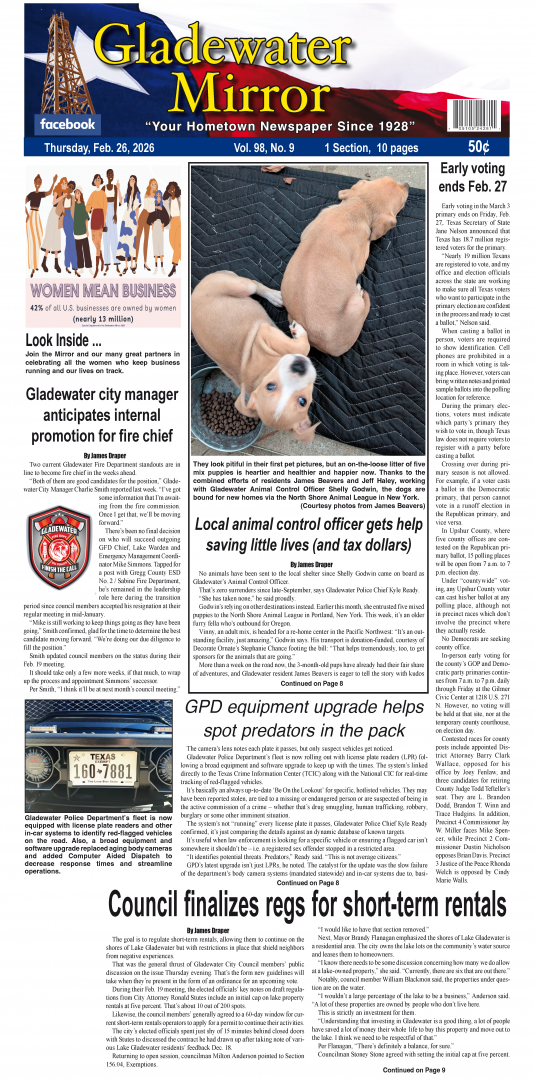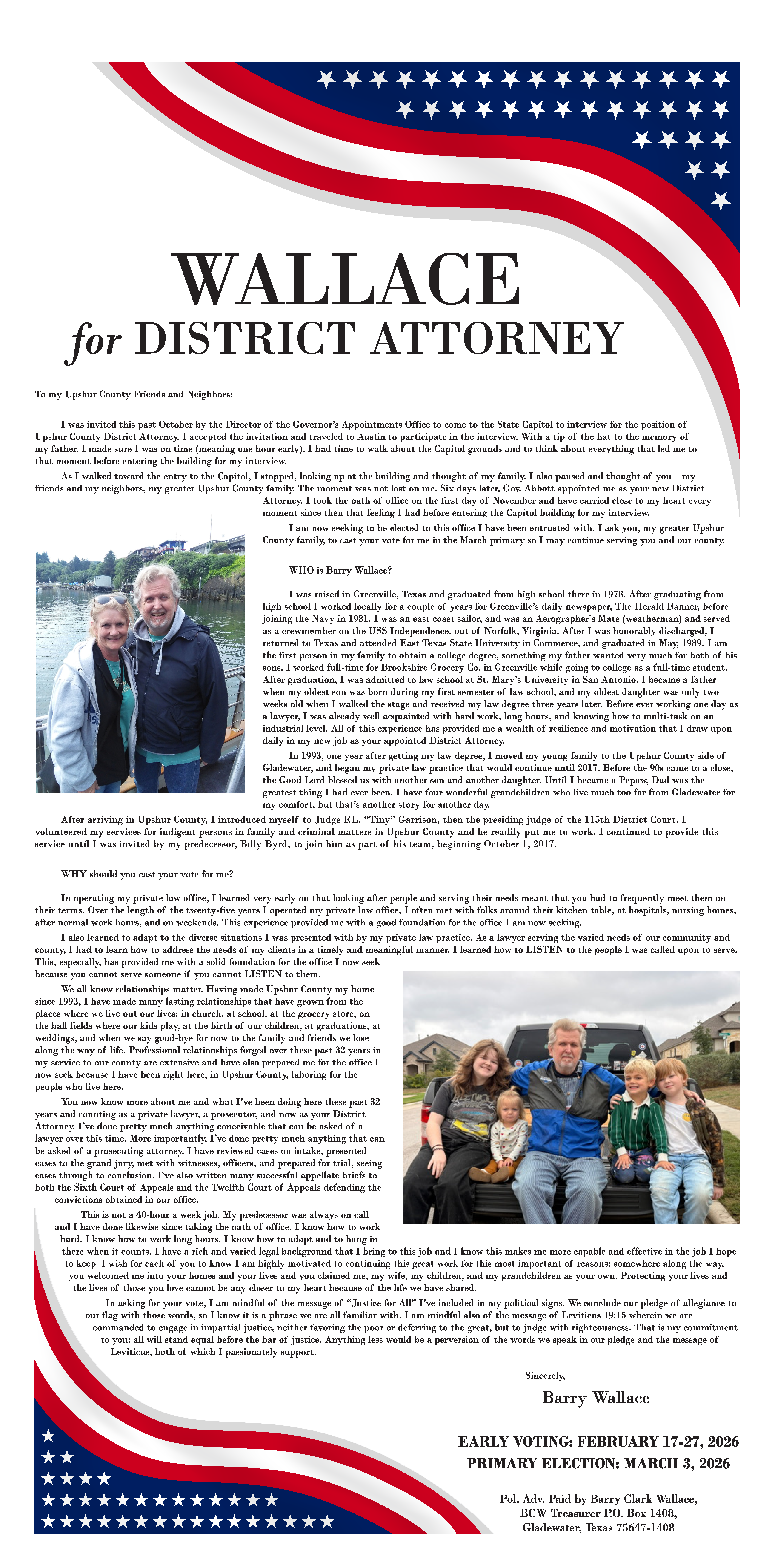“A bucket of money” has been set aside for Texas communities touched by hurricane rain events, and City of White Oak leaders hope a splash could cover the cost of a new comprehensive plan for the community.
According to GrantWorks’ John McElfish, “There’s a very unique opportunity available to a lot of cities and counties in my region,” he told council members last month.
The state’s General Land Office is administering recovery funds tied to rain events in 2015, 2016 and, significantly, from Hurricane Harvey in 2017, McElfish said.
“Most of our counties in our region were declared a disaster area because of the amounts of rain we received,” usually unheard of this far north. “So, we want to take advantage of that.
“As far as I know the City of White Oak has never had a ‘Comprehensive Infrastructure Plan.’ It’ll help you spend your money down the road on infrastructure.”
According to McElfish, full-scale mapping of the entire city can encompass everything from the water and wastewater systems to roads, gas lines, drainage, population density and more – and all of the ‘roadmap’ costs, approximately $300,000, can be funded through a GLO grant.
“The electronic mapping is very important because your public works people can use it. All the tools that are in the Comprehensive Infrastructure Plan will be good and useful for 10 years,” he said. “The best thing about it is it will cost the city no money,” beyond two legal notices in the newspaper seeking Requests for Proposals from grant administration companies like GrantWorks.
“We’d like to see you get the money whether you choose us to administrate it or not. We just build the grant,” compensated from the grant funds at a flat rate for engineering and planning costs.
The Resilient Communities Program grant is non-competitive, McElfish noted, and there’s about $100 million available until it’s all gone. Focused on communities with populations less than 10,000, he’s working with about 30 cities through the East Texas and Ark-La-Tex Councils of Government.
“Very few communities across the country are taking advantage of it because they don’t understand it,” he said, anticipating awards in 2025. “They could replenish it if enough cities and counties apply. The bipartisan infrastructure law is a lot of money. At $300,000, they can do a lot of these.”
Funds leftover after the CIP work is completed could be put to infrastructure needs, McElfish said.
“We’re not eligible for lots of grants because of our median household income,” White Oak council member Dana Mizell noted, glad for the opportunity to apply.
Ultimately, council member Joe Stephen’s motion to approve the RFP notices (and eventually apply for the grant) was unanimously-approved.
“That sounds like a good deal,” Mayor Kyle Kutch concluded. “An offer of free money.”
– By James Draper








